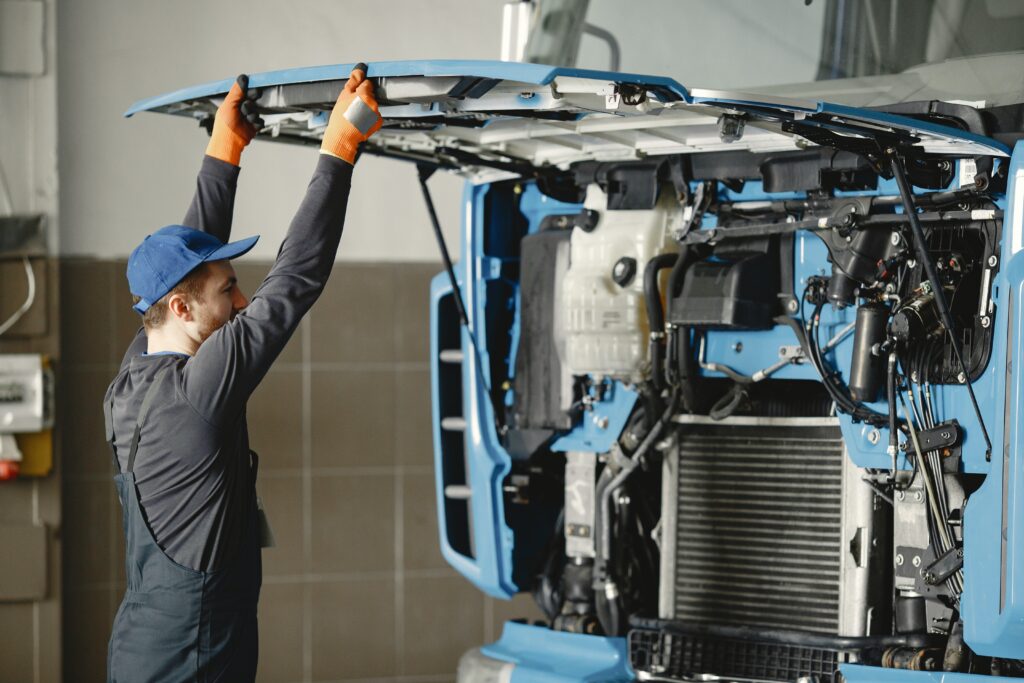Picture this: your engine isn’t performing the way you’d like. And it would sure help if you had it for your next job. Cue EGR deletes.
Do you do an engine overhaul, replacement, or rebuild? Or, do you opt for an EGR delete?
A what? Yes, an EGR delete.
Certified Fleet Services here: having engine performance issues can spell out trouble for your fleet’s operation and your bottom line. We’ve been there before.
Yes, we’ve spent over 25 years building, replacing, overhauling, and working with diesel truck engines.
If you’re considering an EGR delete, look no further. We’ve got you covered.
Here’s everything you need to know about exhaust gas recirculation deletes — the advantages, disadvantages, and other fast facts — to ensure you’re informed and ready to make the best decision for future engine corrective and preventive maintenance.
What exactly is an EGR delete?
EGR delete kits, exhaust kits, and delete kits: you may have heard these terms thrown around before. EGR stands for exhaust gas recirculation.
An EGR kit removes the exhaust gas circulation valve, which is responsible for reducing air pollution and harmful nitrous oxide emissions from the air. When the exhaust gas circulation valve is removed, some of the engine exhaust can then recirculate back through the engine’s cylinders.
Furthermore, an exhaust gas circulation delete helps recirculate the exact amount of exhaust gas to the engine intake system to improve engine performance and efficiency.
The pros/advantages of doing an exhaust gas circulation delete
A few advantages exist when doing an EGR delete, for example:
- Increased power: removing the EGR valve from your engine will help make the engine more powerful.
- A more fuel-efficient vehicle: as the engine becomes more powerful, it can also become more fuel efficient. An EGR delete helps you burn fuel and not recirculate the dirty exhaust gas back into the system. Less soot build up means the diesel particulate filter and other engine components are less likely to clog up and fail.
- An affordable option: EGR delete kits can be an affordable solution for certain engine work and modifications.
The cons/disadvantages of doing an EGR delete
A few disadvantages exist when doing an EGR delete, including:
- They’re illegal in the United States and other countries: exhaust gas circulation deletes are illegal in all 50 states. Penalties for tweaking emissions components in engines can result in thousand-dollar (or more) fines.
- Decreased horsepower: people have often said that having an exhaust gas circulation delete kit installed has resulted in decreased horsepower.
- Increased exhaust gas temperatures: gas temperatures heat up which can spell trouble for fleet teams.
- Potential for engine knocking and engine damage: the knocking inside the vehicle is a result of the fuel in the engine’s cylinders. When this fuel ignites, the fuel can combust instead of burning as it usually does — that is, in a smooth fashion.
Did you know?
The market for components related to exhaust gas emissions — specifically exhaust gas recirculation gas temperature sensors — is expected to grow at a compound annual growth rate of 5.5% from now until 2030, according to Dataintelo.com?
Part of the increase in shipped exhaust gas circulation gas temperature sensors is due to the fact that vehicle emissions are becoming a greater priority for fleets, businesses, and other companies.
And with more than 70% of all goods shipped domestically in the U.S. via trucks, it’s never been a better time to get a diesel truck repair to be prepared to ship vehicle emissions-related goods.
At Certified Fleet Services, our Miami, Sarasota, and Fort Myers, FL-based locations offer a full suite of diesel truck repair services to get you back on the road doing what you do best.
Table: advantages and disadvantages of EGR deletes
| Pros/Advantages |
Cons/Disadvantages |
|
|
Get top-quality engine repairs and EGR delete information at Certified Fleet Services
The pros of an EGR delete include that the EGR delete can provide more power under the hood, increased fuel efficiency, and affordability as a modification.
The cons of an EGR delete include the potential for potential fines (EGR deletes are illegal), decreased horsepower, increased exhaust gas temperatures, and increased chance of engine knocking and damage.
While many people consider EGR deletes to be a viable way to increase engine power and fuel efficiency, the best way to ensure the longevity and health of an engine is with regular engine repairs.
At Certified Fleet Services, we do just that — and more. Our ASE-certified technicians have more than 25 years of experience conducting in-shop diesel truck repairs on all kinds of trucks.
Not local to the Miami, Sarasota, or Fort Myers area? Not a problem.
Our Florida-based team offers mobile truck repair service. In other words, we’ll come to you!
We’re all about getting you back on the road faster. Contact us to learn more about what Certified Fleet Services can do for you.
Frequently asked questions (FAQ) about EGR deletes
What is an EGR delete?
An EGR delete stands for exhaust gas recirculation. EGR deletes include a kit that removes the EGR valve. This valve is responsible for reducing air pollution and harmful nitrous oxide emissions from the air.
When the EGR valve is removed, some of the engine exhaust from a vehicle can then recirculate back through the engine’s cylinders and intake system to improve engine performance and efficiency.
Are EGR deletes illegal?
Yes. As of the date of this posting, having an exhaust gas circulation delete conducted on a vehicle is illegal in the United States and many other countries around the globe.
How do EGR deletes affect the environment and the vehicle?
While EGR deletes can boost power to a vehicle, they can cause engines to produce high levels of nitrogen oxide (NOx) into the air. The increase of nitrogen oxide emissions into the air can increase air pollution.
What’s more, EGR deletes may mean more engine repairs later down the road.
Finally, if federal authorities discover an EGR delete has been conducted on an engine, authorities can levy fines against the vehicle owner, driver, business, and/or vehicle operator.














